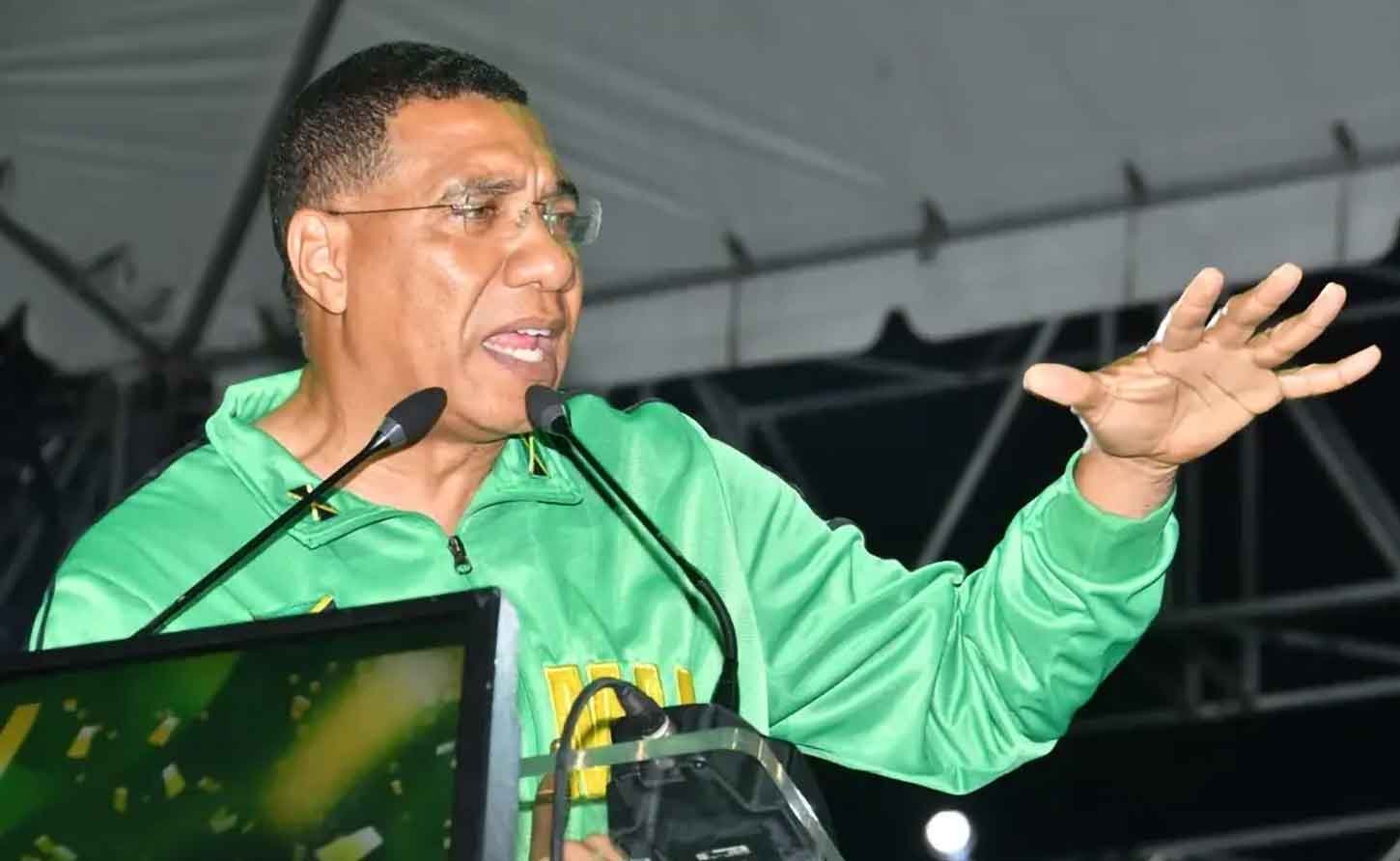JAMAICA| It's a 3rd of September Showdown: PNP Seeks to Capitalize on Narrowing Polls as Jamaica Heads to Historic Election

Opposition gains ground as latest polling shows tightest race in decades
MONTEGO BAY, Jamaica, August 10, 2025 - The roar of thousands of Jamaica Labour Party faithful echoing through Half-Way Tree on Sunday evening marked more than just another political rally—it signaled the beginning of what could be the most consequential election in Jamaica's modern democratic history.
Prime Minister Andrew Holness, standing before a sea of green, delivered the news the nation had been anticipating: Jamaicans will head to the polls on Wednesday, 3rd September, to decide who will lead the country for the next five years.
But beneath the triumphant veneer of Holness's announcement lies a political reality that would have been unthinkable just three years ago. The opposition People's National Party, written off by many after suffering devastating defeats in 2016 and 2020, now finds itself within striking distance of Jamaica House, armed with polling data that suggests the electoral landscape has fundamentally shifted.
The Polling Revolution: From Dominance to Dead Heat
The numbers tell a remarkable story of political resurrection. The latest RJRGLEANER-commissioned Don Anderson poll, conducted between May and June 2025, shows the PNP holding a razor-thin lead at 32.6 percent compared to the JLP's 29.6 percent—a margin so narrow it falls within the poll's three-percentage-point margin of error, effectively making this a statistical dead heat.
This represents a dramatic reversal from the JLP's period of political dominance. Between 2016 and 2022, the JLP maintained an average 12-percentage-point lead over the PNP, making Holness's party appear virtually unassailable.
Yet the political tide began turning following the February 2024 local government elections, where the PNP captured the popular vote despite record-low turnout.
What makes these numbers particularly striking for the opposition is the trajectory.
The PNP's lead has been steadily eroding from a high of nine percentage points in September 2024 to the current three-point margin, but pollster Don Anderson notes this still represents a fundamental shift in Jamaica's political geography.
Perhaps most tellingly, 37.8 percent of potential voters remain either "not sure yet" or indicate they're "not voting"—a massive pool of undecided citizens who could swing the election either way.
 PNP President Attorney-at-Law Mark Golding is determined to unseat Holness in the elections.The Demographic Battlefield
PNP President Attorney-at-Law Mark Golding is determined to unseat Holness in the elections.The Demographic Battlefield

The demographic breakdown reveals why both parties face an uphill battle in different segments of society. The PNP commands strong support among males (40 percent versus 28 percent for the JLP) and dominates in the crucial 55-64 age group (39 percent against 28 percent for the JLP).
This older demographic traditionally shows higher voter turnout, giving the PNP a potential organizational advantage.
Conversely, the JLP maintains its grip on younger voters, particularly those aged 18-34, who have consistently supported the party over the past five years.
However, Anderson's polling reveals concerning volatility in this demographic, with support among 18-24 year-olds "fluctuating between the JLP and the PNP" over the past year.
The gender divide presents another intriguing dynamic, with males showing an 11 percent preference for the PNP while females favor the JLP by 3.5 percent.
These demographic fault lines will likely determine campaign strategies and resource allocation as both parties seek to maximize turnout among their core supporters while making inroads with skeptical voters.
Campaign Contrasts: Continuity vs Change
The JLP enters this election with a compelling economic narrative. Holness has consistently highlighted his administration's record of fiscal discipline, pointing to sustained economic growth over 20 consecutive quarters, a significant reduction in violent crime, record-low unemployment rates, and a more than 150 percent increase in the minimum wage.
His "Choose Jamaica" campaign emphasizes infrastructure achievements and promises continued economic stability.
The Prime Minister's pitch to voters is fundamentally conservative: don't risk the progress we've made. "In just a decade, we have transformed Jamaica from the brink of economic collapse into the strongest economy since our Independence," Holness declared during his Budget Debate speech earlier this year.
The PNP, under Mark Golding's leadership, offers a sharply different vision centered on economic inclusion and social justice. Their "Time Come" campaign promises transformative change: 50,000 affordable homes, a $500,000 deposit grant for young prospective homeowners, expanded school meal programmes, and full university scholarships for the first person in each family to matriculate.
This represents more than policy differences—it's a fundamental philosophical divide about Jamaica's future direction. Where the JLP preaches consolidation of gains, the PNP argues for redistribution of benefits.
The Integrity Question
Perhaps the most significant wild card in this election is the question of leadership credibility. Prime Minister Holness now carries an unfavorable opinion rating of 39.9 percent compared to Mark Golding's 25.8 percent, a reversal that speaks to growing concerns about governance issues.
The PNP has aggressively targeted Holness's unresolved income declarations to the Integrity Commission, which have remained uncertified since 2021, positioning this as a character issue that transcends partisan politics.
Golding has repeatedly emphasized his "clean hands and pure heart" while criticizing the JLP for what the PNP describes as "a pattern of corruption under its leadership".
The Mathematics of Victory
With 2,077,799 eligible voters and 32 seats needed to form government in the 63-seat House of Representatives, this election will likely be decided in approximately 20 swing constituencies.
Key battlegrounds include the western parishes of St James, Westmoreland, Hanover, and St Elizabeth, as well as Manchester, Clarendon, and St Catherine in central Jamaica.
The historical stakes couldn't be higher. Since gaining universal adult suffrage in 1944, Jamaica has held 18 general elections, with both parties winning nine times each.
A JLP victory would break this tie and potentially establish them as the dominant force in Jamaican politics for a generation. A PNP triumph would represent one of the most remarkable political comebacks in Caribbean democratic history.
Since Jamaica achieved universal adult suffrage in 1944, the nation has conducted 18 general elections, with both major parties sharing an exactly equal record of success.
The Jamaica Labour Party has secured victories in 1944, 1949, 1962, 1967, 1980, 1983, 2007, 2016, and 2020, while the People's National Party triumphed in 1955, 1959, 1972, 1976, 1989, 1993, 1997, 2002, and 2011.
Notably, the PNP boycotted the 1983 election on a matter of principle, allowing the JLP an unopposed victory, but subsequently dominated the political landscape with four consecutive wins from 1989 to 2002. The JLP's recent resurgence began in 2007 and continued through their current tenure.
This remarkable 9-9 tie over nearly eight decades of democratic competition makes the September 3rd contest historically pivotal—the victor will finally break this decades-long deadlock and potentially establish themselves as the more successful party in Jamaica's democratic era.
A Democracy at the Crossroads
As nomination day approaches on August 18th, Jamaica stands at a critical juncture. This election transcends normal partisan competition—it's a referendum on whether voters prioritize economic stability or social transformation, whether they value proven leadership or fresh perspectives, whether they believe in continuity or change.
The narrowing polls suggest that for the first time in nearly a decade, Jamaican voters have a genuine choice. In a region where democratic transitions are increasingly fraught with tension, Jamaica's ability to conduct a peaceful, credible election while navigating deep political divisions will be watched closely by Caribbean neighbors and international observers alike.
Come September 3rd, nearly 2.1 million Jamaicans will render their verdict not just on two political parties, but on the very direction of their democracy. In a race this close, every vote will matter—and every constituency could be the one that tips the balance of power.
-30-
